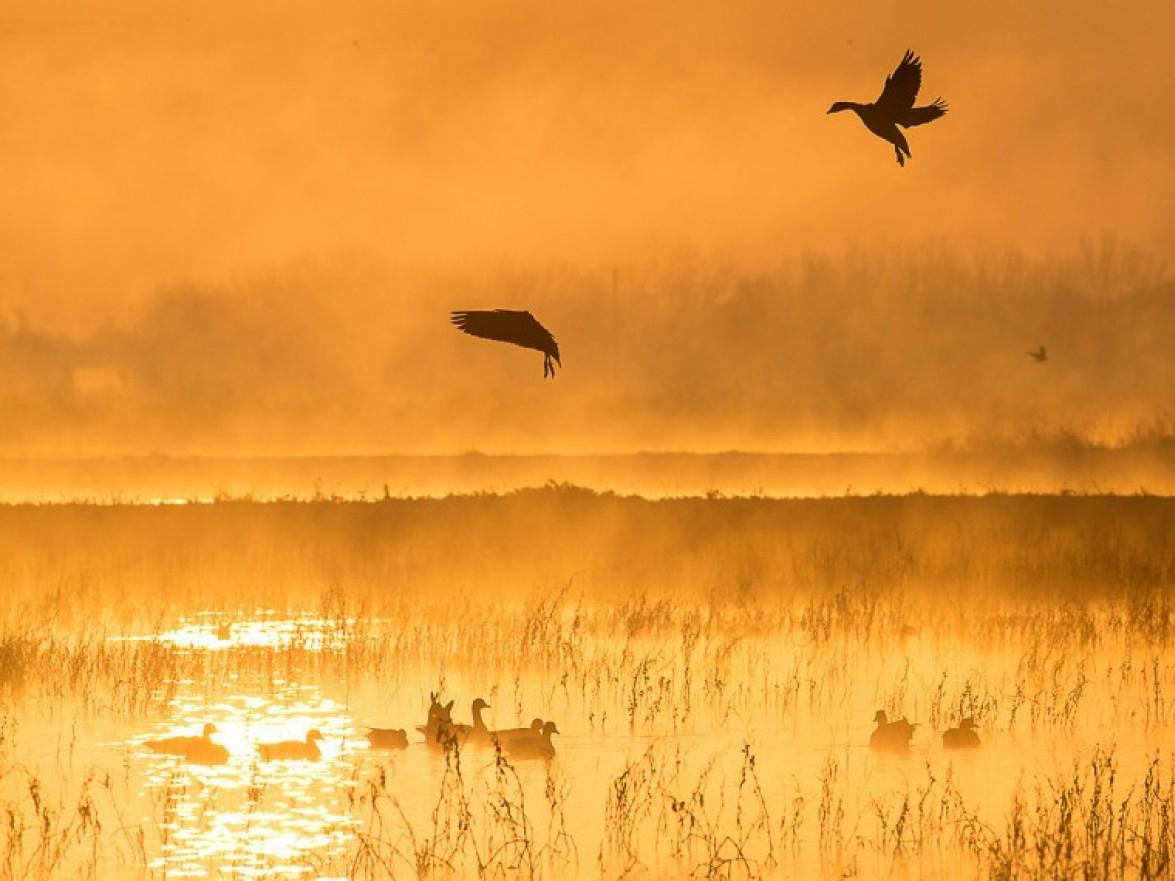Donald Trump to repeal Obama-era water rule to allow draining of wetlands and streams
Administration will instruct Environmental Protection Agency and Army Corps of Engineers to 'review and reconsider' 2015's Waters of the United States rule

Your support helps us to tell the story
From reproductive rights to climate change to Big Tech, The Independent is on the ground when the story is developing. Whether it's investigating the financials of Elon Musk's pro-Trump PAC or producing our latest documentary, 'The A Word', which shines a light on the American women fighting for reproductive rights, we know how important it is to parse out the facts from the messaging.
At such a critical moment in US history, we need reporters on the ground. Your donation allows us to keep sending journalists to speak to both sides of the story.
The Independent is trusted by Americans across the entire political spectrum. And unlike many other quality news outlets, we choose not to lock Americans out of our reporting and analysis with paywalls. We believe quality journalism should be available to everyone, paid for by those who can afford it.
Your support makes all the difference.President Trump will instruct the Environmental Protection Agency and Army Corps of Engineers to “review and reconsider” a 2015 rule known as the Waters of the United States rule, according to a senior official, a move that could ultimately make it easier for agricultural and development interests to drain wetlands and small streams.
The official, who spoke on the condition of anonymity because the executive order had not yet been signed, said the directive aimed to address the concerns of about 30 states and an array of business interests that have criticised the previous administration for overreaching. The final outcome of Trump’s order could have tremendous implications for the agricultural, real estate, gravel, sand and ranching sectors, as well as a critical habitat for aquatic species and migratory birds.
Still, it could take well over a year for the directive to be carried out. It will likely trigger a fresh round of rulemaking, but could also lead to extensive litigation as the agencies seek to redefine federal restrictions on what accounts for 60 percent of the nation’s water bodies.
The push to unravel the rule marks yet another shift in a decades-long debate over to what extent the federal government can dictate activities affecting the wetlands, rivers and streams that feed into major water bodies. The controversy has spurred two separate Supreme Court decisions, as well as a more recent federal appellate court ruling, as the two previous administrations sought to resolve the matter through executive actions.
Two Supreme Court decisions that came down during the George W. Bush administration, in 2001 and 2006, fostered uncertainty over exactly what falls under the federal jurisdiction under the Clean Water Act. In the 2006 Rapanos v. the United States decision, for example, the court’s four most conservative justices at the time offered a very constrained view that only “navigable waters” met this test. But Justice Anthony M. Kennedy, who refused to join either the conservatives or the liberals, suggested the government could intervene when there was a “significant nexus” between large water bodies and smaller, as well as intermittent, ones.
Speaking to reporters Monday, the senior administration official said the regulation issued in 2015 “vastly expands federal jurisdictions over state waters, and we think... it could potentially violate previous Supreme Court decisions.”
While acknowledging that past court decisions have been “confusing,” the official said that administration officials think “the Supreme Court has tried to make it clear that the federal agencies that oversee this issue, the Army Corps of Engineers and the EPA, should be shrinking” their say over smaller bodies of water across the country.
Outdoor recreation and environmental groups, however, said the new federal protections were essential to safeguard both public drinking-water supplies and the terrain that sustains an array of waterfowl, fish and other species.
“Without the Clean Water Rule’s critical protections, innumerable small streams and wetlands that are essential for drinking water supplies, flood protection, and fish and wildlife habitat will be vulnerable to unregulated pollution, dredging and filling,” said Bob Irvin, president of American Rivers.
John Gale, conservation director for Backcountry Hunters & Anglers, who noted that the previous administration had weighed 1 million comments when crafting its rule, said these smaller streams and water bodies create “healthy riparian areas critical to more than 80 percent of our wildlife, including numerous species of big game. Sportsmen will not stand for shortsighted, irresponsible attacks on fundamental conservation laws like the Clean Water Act.”
The US Court of Appeals for the 6th Circuit put a nationwide stay on the Obama-era rule last year, and the official said Trump’s executive order will instruct the attorney general to go back to that court and “take appropriate steps to hold that case in abeyance while the evaluation occurs at the Army Corps and the EPA.”
In addition, the official added, the directive will tell the two agencies to “consider thinking about” a decision by Justice Antonin Scalia in 2006 that suggested dramatically curtailing federal jurisdiction over smaller water bodies.
Mace Thornton, a spokesman for the American Farm Bureau Federation, said in an email that as his group has fought against the current policy, “our constant message has been that regulators need to go back to the drawing board to get this rule done right.”
“We welcome this action, but realise a lot of work lies ahead to secure a policy that works in a fair and transparent manner,” Thornton added.
The Washington Post
Subscribe to Independent Premium to bookmark this article
Want to bookmark your favourite articles and stories to read or reference later? Start your Independent Premium subscription today.
Join our commenting forum
Join thought-provoking conversations, follow other Independent readers and see their replies
Comments